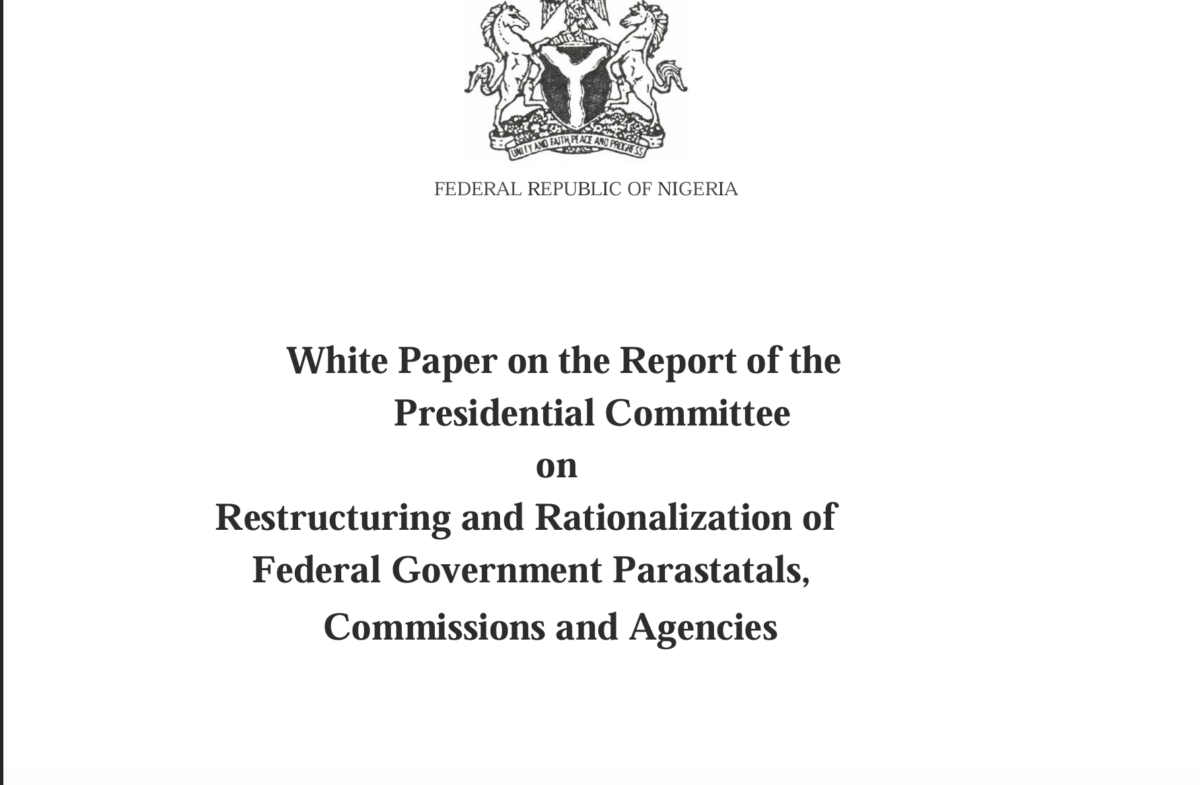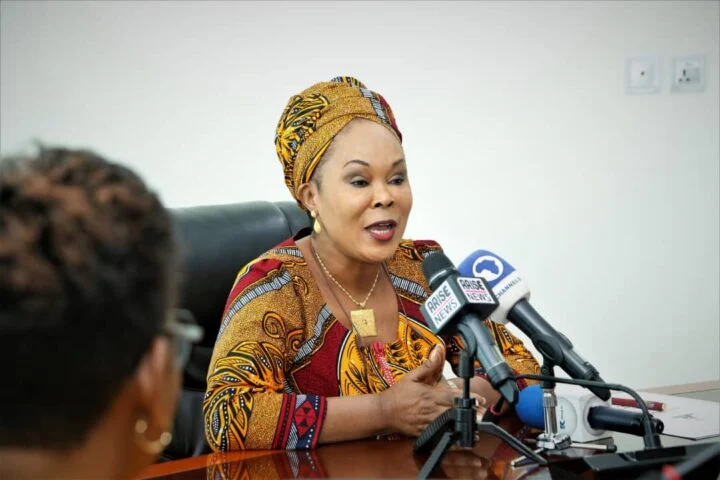The Federal Executive Council (FEC) adopted for implementation a 12-year-old report, Restructuring and Rationalization of Federal Government Parastatals, Commissions and Agencies, otherwise known as the Oronsaye report, yesterday.
The report has been of interest to various groups of Nigerians because of its clear potential to drastically reform the civil service and cut down on government spending. Despite the resources expended in conceiving the report, however, successive governments have been flippant about its implementation.
FIJ looks at the original white paper presented in 2014 containing the full recommendations made by a 7-member committee. On the front burner are the merging and scraping of duplicitous federal agencies and the consolidation of essential ones.
In total, the Oronsaye report looked at 270 agencies and commissions, each of which had several remarks and recommendations for the government to accept or reject. These recommendations were either accepted, noted or rejected. Overall, 133 recommendations were accepted, 260 noted and 268 rejected.
People have seen the latest effort by the government from different angles. Grounded in the way similar announcements were made by former Presidents Goodluck Jonathan and Muhammadu Buhari, some Nigerians feel nothing much may come out of the current effort, while others appear to be hopeful that the time has come for the report. Essentially, there is an apprehension about whether implementing the report could lead to the dismissal of workers.
FIJ has found that at no point did the report recommend the dismissal or disengagement of workers in the process of implementation. It rather mentioned personnel redeployment, even where an agency is to be abolished. This appears to give confidence to civil servants and ensure that people are not rendered jobless.
Though the government rejected some recommendations to discontinue operating some agencies and commissions, it has continued to starve them of adequate funding, leading to inefficiency, FIJ has found.
An instance of such underfunding happened at the Public Complaints Commission (PCC). Set up as an ombudsman, the commission exercises oversight over public and corporate bodies, except the legislature and the military. FIJ has, however, found from insiders that the organisation has been greatly underfunded, hampering the productivity of workers. As of press time, PCC had been shut down by the workers over arrears of unpaid allowances.
Here is a list of a few parastatals, including the pilgrimage commissions through which the government sponsors religious trips, addressed in the report and the recommendations made about them.
| S/N | PARASTATAL | RECOMMENDATION | REMARK |
| 1 | Nigerian Investment Promotion Commission (NPIC) | To be relocated to the Ministry of Trade and Investment and merged with Nigerian Export Promotion Council. | Noted |
| 2 | Public Complaints Commission (PCC) | To be abolished. | Rejected |
| 3 | National Salaries, Incomes and Wages Commission | Unified with Revenue Mobilisation Allocation and Fiscal Commission | Rejected |
| 4 | Federal Road Safety Corps (FRSC) | Act setting up be repealed and its functions reverted to the highway department of works ministry and staff redeployed to relevant agencies. | Rejected |
| 5 | National Agency for the Control of HIV/AIDS (NACA) | Act to be repealed and made a department in the health ministry. | Rejected |
| 6 | National Hajj Commission of Nigeria and Nigerian Christian Pilgrims Commission | To be abolished. | Rejected |
| 7 | Nigerian Examination Council (NECO) and National Business and Technical Examinations Board (NABTEB) | Act to be repealed and duties returned to the West African Examination Council (WAEC). | Rejected |
| 8 | Nigeria Education Research and Development Council (NERDC) | Act to be repealed and duties returned to a policy planning department in the education ministry. | Rejected |
| 9 | National Agency for Science and Engineering Infrastructure (NASENI) | To be merged with others. | Rejected |
| 10 | Small and Medium Entreprises Development Agency (SMEDAN) and National Directorate of Employment | To be merged together. | Rejected |
| 11 | National Teachers Institute (NTI) | To be merged with Nigerian Institute for Education Planners and Administrators | Accepted |
Importantly, Jonathan and Buhari unsuccessfully attempted to implement the white paper during their administrations. Notable developments, however, arose, including the merger of ministries during the Buhari-led administration and the creation of new ones by his successor.
The hard-hitting recommendations of the Oronsaye report have been praised as necessary in order to reduce the cost of governance in the country.
Subscribe
Be the first to receive special investigative reports and features in your inbox.















